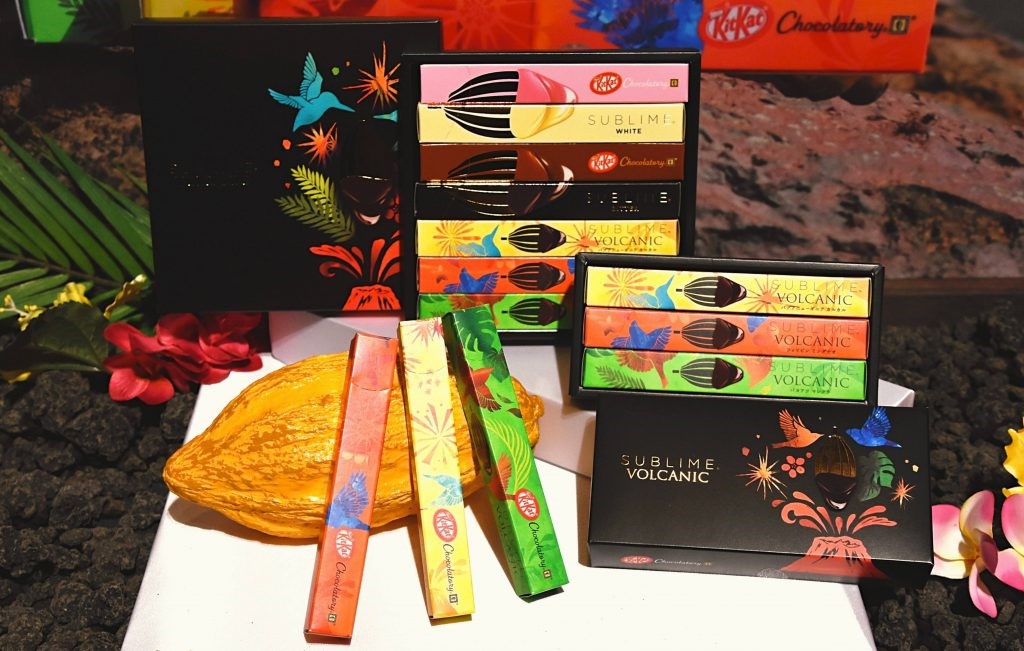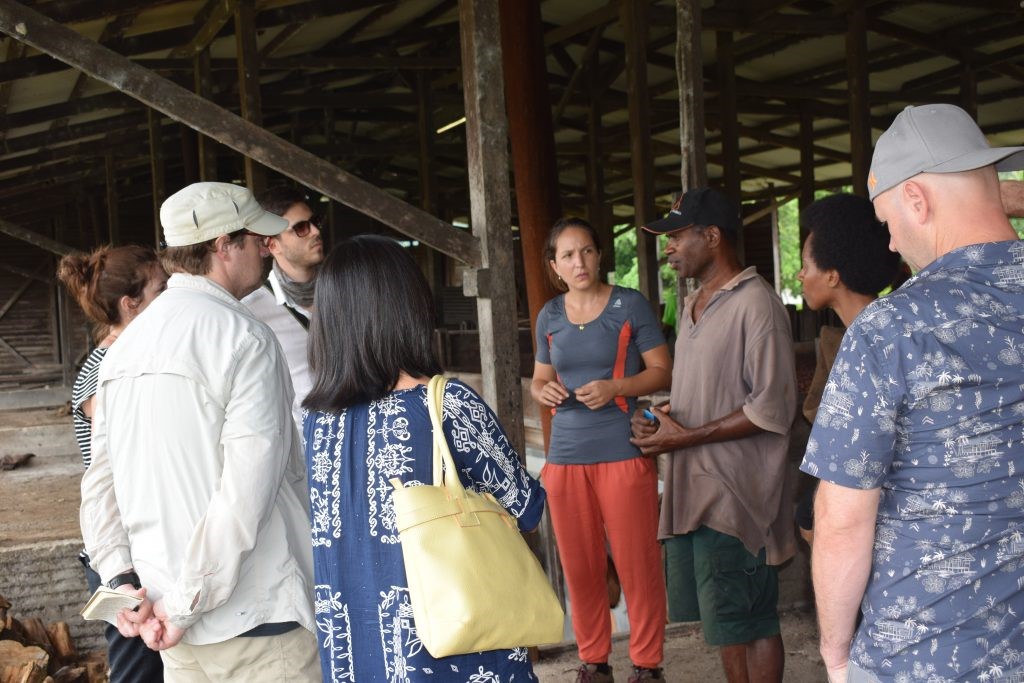Chocolates, volcanoes and women in cocoa
International Women’s Day is observed every year in recognition and celebration of women around the world. This year, the International Women’s Day 2019 #IWD2019 campaign theme of #BalanceforBetter is a call to action for driving gender balance across the world. The following article highlights the achievements of two women who are making a difference in their communities with support from the PHAMA Program (now known as PHAMA Plus).
When Nestle introduced its new volcanic edition of KitKat chocolates in a star-studded event in Japan this year, two unsung heroes proudly welcomed the news on their cocoa plantations in the Pacific.
Tiphaine Beaune and Barbara Goodyear are the suppliers of cocoa beans used by Nestle to produce the volcanic KitKat chocolates. Both women are actively involved in the running and operations of cocoa plantations in Vanuatu and Papua New Guinea, respectively.
Tiphaine manages Metenesel Estate, a cocoa plantation spanning 500 hectares of land on Malekula Island in Vanuatu while Barbara Goodyear operates Kulkul Cocoa Plantation on Karkar Island in Madang, PNG.
“We are very proud to be connected with world-renowned Nestle. We are really happy that people realise that PNG has potential and that they support us,” said Barbara of the launch.
“We hope that we are putting PNG on the world map again. There was in former times a lot of bad cocoa going out and we hope we can prove that PNG has really good cocoa. We hope more people will be interested in buying from us and we can export more and get better prices.”
An equally proud Tiphaine echoed similar sentiments, saying they were pleased to see Vanuatu gaining global recognition thanks to cocoa.
“We are also very proud to see that the work we have done for two years is beginning to show results. We hope to make ourselves better known by this success and have more recognition to find more outlet for the sale of our premium cocoa. This is also an opportunity to change foreign ideas about the quality of cocoa in Vanuatu. We hope that this will greatly help the development of the cocoa sector in Vanuatu,” she added.
In addition to cocoa, both women also have the Pacific Horticultural and Agricultural Market Access or PHAMA Program support in common. It was this support that helped link them to premium cocoa buyers like Martyn O’Dare who visited their plantations through trade visits initiated and supported by PHAMA. PHAMA is a multi-country program supported by the Australian and New Zealand governments.

PHAMA has now entered a new phase known as PHAMA Plus. The program recognises and supports women for their contribution to economic development and has been supporting women’s economic empowerment in six core countries, namely Fiji, PNG, Samoa, Solomon Islands, Tonga and Vanuatu. PHAMA strives to ensure there is gender equality in the implementation of its activities by considering complex gender relations, power and status, and the role of women and men in Pacific households and communities.
“Without PHAMA’s input, we could not have gotten so much exposure internationally, and in such short time. Through the (trade) visit and also with help from Hanna Wheaton (PHAMA Plus cocoa advisor) we got connected to Australia, NZ and the United Kingdom. Without PHAMA we would only sell our cocoa locally (to Madang),” said Barbara.
She adds that the exposure has also boosted their enthusiasm in developing new varieties of cocoa that are resistant to disease and offer better yield and quality.
“We believe the industry has a brighter future ahead. We can show our harvester the end product (chocolate) and the articles about the chocolates. This helps them to better understand the value chain (bean to bar). The workers are also proud when the name Karkar Island or Kulkul/Marangis is marketed on overseas products. This has changed their thinking and harvest routines as they are inspired to share more of their hard work with the world,” she said.
For Metenesel Estate, Martyn became their most important client for premium cocoa.
“The visit of various potential buyers in April 2017 allowed us to expand our network. During Martyn’s visit last April (2018), I had already sent him a container of six tonnes so he knew our quality but it allowed him to know the place where the beans come from. It has opened the doors for export with volumes that should increase gradually,” said Tiphaine.
With the discovery or introduction of volcanic chocolate, Martyn says the Pacific will continue to attract recognition as a good origin.

“Farmers need to emulate the existing “good farmers” who follow the good farming practices of planting, fermentation and solar drying to mention three of the many steps. I think the farmers still need the support of the industry and other influential bodies such as PHAMA to ensure the farmers understand what quality of cocoa is acceptable for this market and what is not acceptable. I would like to think the government could also help in provision of organisation shipping information, background research (heavy metal testing as an example) and fumigation,” said Martyn.
Martyn, who teamed up with Nestle to produce the volcanic KitKat range, said cocoa was sourced only from PNG, Vanuatu and the Philippines. He said they would also be looking at sourcing volcanic cocoa from more Pacific islands.
“The tastes are all very different and complex. Each island gives its own unique taste, however, without “good farming practices” the cocoa would not yield all the essential precursor flavours which we, as chocolate makers, can tease out. This is a perfect example of team work throughout the supply chain. Overall, the taste of the chocolate from these islands is more complex than bitter and individual flavours are like facets of a gem stone.”
Martyn says without the initial and subsequent support of PHAMA, it is unlikely he would have met many farmers and offered unbiased and helpful advice.
“PHAMA has been key in connecting the buyers with the farmers and the logistical partners as getting cocoa from A to B is far more difficult in the Pacific than anywhere else. Without PHAMA, this exciting project would not have happened, or would have taken another decade to start.”
-ENDs-
For more information please contact Country Manager PNG, Sidney Suma at s.suma@phamaplus.com.au
